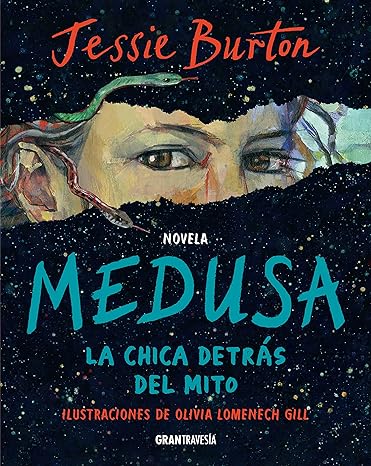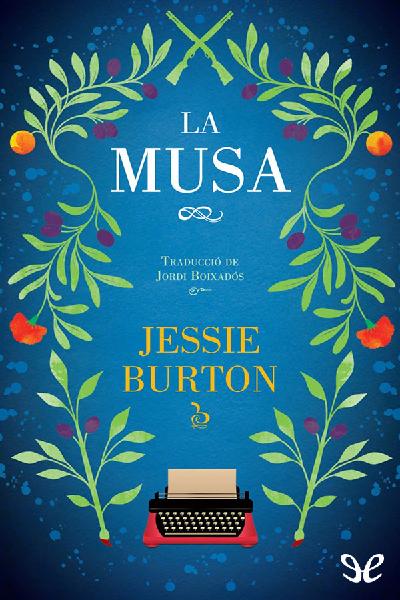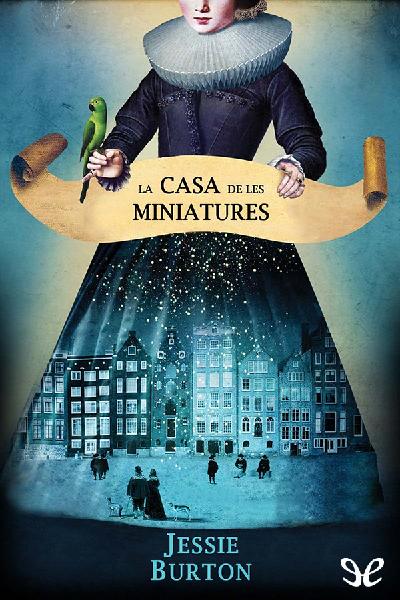oleebook.com
Medusa: La chica detrás del mito de Jessie Burton
de Jessie Burton - Género: Ficcion
Sinopsis
«Si te dijera que matĂ© un hombre con una mirada, Âżte quedarĂas a escuchar el resto de la historia?».
Exiliada a una isla lejana por los caprichos de los dioses, Medusa tiene Ăşnicamente por compañĂa a sus fieles hermanas y las aterradoras serpientes que adornan su cabeza. Pero todo cambia cuando un bello y encantador chico llamado Perseo llega a la isla. Los dos jĂłvenes comienzan a conocerse sin verse fĂsicamente, confesando sus miedos y sufrimientos. Entonces, se desata el deseo, el amor, la traiciĂłn y la posibilidad de enfrentarse al mismo destino.
Una deslumbrante versión feminista del mito griego escrita por Jessie Burton, la célebre autora de La casa de las miniaturas, y asombrosamente ilustrada a todo color por Olivia Lomenech Gill.
« Un relato hermoso y profundo. El texto de Burton y las ilustraciones de Lomenech Gill son una combinaciĂłn perfecta que ofrecen un giro poderosamente feminista, elegĂaco y original de esta vieja historia». Madeline Miller, autora de Circe y La canciĂłn de Aquiles
« Pura perfección de principio a fin, tanto el tex-to como las ilustraciones». Catherine Doyle, autora de la serie El guardián de tormentas
Libros Recomendados - Relacionados
Reseñas Varias sobre este libro
This was the story that Medusa deserves. So stunning!267 s Margaret M - months of catching up to do525 1,429
4 siss-iling stars for the retelling and the reimagining of one of Greek MythologyÂ’s greatest stories. Imaginative, different and a story that provides all the elements we have come to expect in a Greek tragedy.
“I had a map I had a star, but I also made hurricanes. I am telling you this because you need to understand what happened when Perseus turned up on my island. I made a choice, but also that choice was beyond me, waiting for its making”
With a look that would turn men to stone, Medusa has earned her place in Greek mythology as the ruthless Gorgon, with a head of snakes. However, forget all that because Jessica Burton tells a very human story about Medusa, the young girl who is thrust into an adult world at the tender age of fourteen, as she learns to deal with betrayal and abuse as she write her own story.
A story that is magical yet tragic and beautiful yet disturbing in its evocative themes, and poignant messaging. A book that is brilliantly conceived, vividly depicted, and expertly written and a book for everyone.
The Plot
Medusa was a fourteen-year-old girl who had drawn the attention of Poseidon and Athena for the wrong reasons. Stalked by Poseidon she is sexually abused by him in Athena’s temple but far from sympathy you would expect from Athena, instead the goddess turns her beautiful hair to a mass of venomous snakes with a promise “woe betide any man fool enough to look upon you now”.
Four years on and exiled in a remote island with little company except her two immortal sisters, dog and the snakes that adorn her head, Medusa is entranced by the arrival of Perseus. A friend that she begins to trust, and with the desire to shed the ‘ache of loneliness’, she opens up to him. A friend or yet another male that is about to deceive her?.
Review and s
Beautiful, captivating and fascinating as a retelling of Medusa, however, the standout from the book are the poignant messages, fables and life lessons that are subtly interspersed through the story. Apart from the often-told horrors of rape, and stories of abandonment, male dominance, and deception, we see a coming-of-age of a girl disfigured and wrongly accused by the people who should be protecting her. The way Burton captured the sentiment around all these themes was extraordinary yet simple, although they did stir up strong emotions.
In a book that included so many fables, here are some of the standout ones for me
If you could bottle confidence Medusa recalls “when I was little, my sisters never asked me to be anything other than who I was. Myself. That’s a great gift…. But in the end, it was taken from me”
A girl who no longer puts her key to happiness in someone else’s hand she recalls.“They all tested me; they all tried to see if I could break. But I was tired of men and gods and goddesses dictating the ebb and flow of my happiness, my state of mind… my one true hope was me”
One that made me think was the message to not over promise, because Medusa had promised many things that she did not have the power to control, and in doing so entrapped herself and sealed her own destiny.
A stunning story, a beautifully illustrated hardback that is worth having on the bookshelf for the imagery alone and a story that is told with sentiment, elegance and meaning.greek-mythology221 s2 comments Peter472 2,575
Vigilant
Jessie BurtonÂ’s retelling of the Medusa story turns several of the recognised elements about Medusa on its head. This book asserts the tale of a woman as fascinating as anyone in Greek mythology and certainly one of the most tragic. BurtonÂ’s interpretation of Medusa is not the stereotypical fixation of a monster deployed as an opponent in a heroÂ’s golden quest. She is a vividly drawn young woman, fearful, lonely, unsure of her future, and searching for answers.
The novel advocates a womanÂ’s position, a woman wronged, and a journey to discover herself and find acceptance for what she has become. At one level, this can be interpreted as a feminist opportunity to illustrate the power of women and the deceit of men. Still, I instead wanted to see this through the lens of a dazzling tragedy of humanity.
Medusa was a beautiful young woman pursued by Poseidon until he raped her in Athena’s temple. Athena’s retribution was to punish Medusa and her two sisters by turning them into Gorgons. Stheno and Euryale became immortal winged beings, while Medusa, the mortal sister, with hair replaced by snakes, received a further cruel warning. “ ‘Medusa, listen well. Woe betide any man fool enough to look upon you now!’ ‘What do you mean?’ I whispered, barely able to speak, but Athena saw no need to give me an answer.”
MedusaÂ’s happy fishing life with her sisters is replaced with an isolated existence on a deserted island. While her sisters can fly off, Medusa is confined to the rocky landscape with only her dog as company. One day a young man lands on the island as if blown off course, but armed with his sword, shield and winged sandals all kept covered on his boat. Medusa directs him to the edge of her cave but warns him not to come in or look at her. He says his name is Perseus, while Medusa claims her name is Merina.
As they spend their days talking, they realise the growing intimacy and the sense of companionship. They discuss many things and seem to be open and revealing about themselves. Although both still hide a secret. What is PerseusÂ’s true mission, and why wonÂ’t Medusa give her real name. Could this be love, and will it survive if they tell each other their hidden secrets?
The book is a sensitive view of Medusa that we don’t usually have the opportunity to consider. Her fate designated at the hands of a God and Goddess feels cruel, how through no fault of her own has she been so horribly damned. As the story progresses, her sense of worth and hope grows. Perhaps she has overimagined or misunderstood Athena’s curse – “Woe betide any man fool enough to look upon you now!” Perhaps Perseus can help!
The book is an illustrated version, with remarkable drawings from Olivia Lomenech Gill, that fit perfectly with the theme of Greek mythology and ancient history. I would recommend this book, and I want to thank Bloomsbury Publishing and NetGalley for providing a free ARC in return for an honest review.fantasy netgalley151 s ? Helena ?387 1,069
I received this complimentary ARC from the publisher, in exchange for an honest review.
IÂ’d been looking forward to this retelling of MedusaÂ’s tale since it was announced and thankfully, Jessie Burton didnÂ’t let me down. IÂ’d never read any of her previous books before, and IÂ’m so very glad that I finally did. I had a grand time reading this.
As always, I prefer the original Greek myth, which didnÂ’t have any involvement from Poseidon, but instead focused on MedusaÂ’s innate power that came from being born the mortal Gorgon. However, I think Burton did a great job of blending the various interpretations in hers, both from the Greek original as well as from OvidÂ’s more popularised Roman retelling. BurtonÂ’s retelling read a faery tale, its lyrical tone pulling me along on MedusaÂ’s journey.
I especially loved the inclusion of MedusaÂ’s sisters, who are so often sadly omitted in modern retellings. Burton also portrayed another side to Perseus, which I hadnÂ’t seen before and greatly appreciated. It was simply a compulsively readable story that sucked you in, making you curiously turn the pages, excited to find out what happened next.
Not only did I enjoy the story itself, but the art to go along with the retelling was equally stunning. It was simultaneously antique with a creative twist, not entirely Greek-inspired art, but something wholly original too. IÂ’m glad it was illustrated because it greatly enhanced my reading experience and added to the storybook atmosphere the words themselves created.
This was one of - if not the best - Medusa retelling IÂ’d read in years and I highly recommend it to those wanting a fresh take on her myth. BurtonÂ’s retelling is another fabulous addition to the recent stack of feminist mythological retellings and I do hope she plans to write more of them in the future. IÂ’d pick them up in a heartbeat.arcs ebook hardback ...more114 s Chrissy132 210
Medusa is definitely having her moment just now and Jessie Burton's take on the story doesn't let her down. This was different to other retellings, combining elements from classic versions of the myth and offering something unique too.115 s destiny ? howling libraries1,811 5,959 Want to read
A Medusa retelling that actually focuses on the shitty things men did to her?! What a time to be alive ? fantasy retellings-myths ya105 s Sujoya(theoverbookedbibliophile)- Lots of catching up to do! 590 1,975
“If I told you that I’d killed a man with a glance, would you wait to hear the rest? The why, the how, what happened next? Or would you run from me, this mottled mirror, this body of unusual flesh?”
In this fascinating reimagining of the myth of Medusa, author Jessie Burton presents us with a novel feminist twist to a character and story that has, for the most part, featured as one of PerseusÂ’s heroic exploits. Simply put, Perseus has always been the hero and Medusa the vanquished. But Jessie BurtonÂ’s Medusa is much more than that. Cursed by the Goddess Athena and transformed into a Gorgon with snakes in place of her once beautiful hair, the once beautiful Medusa now lives on a deserted island with her sisters, Stheno and Euryale,and her dog Argentus. Her transgression? Being raped by Poseidon within the premises of the Temple of Athena.
“Woe betide any man fool enough to look upon you now!”
Four years into her exile, when Perseus moors his boat on the shores of the island, he catches Medusa’s eye. Medusa longs for his company and companionship. However, she is uncertain of how Perseus would react to her appearance (at this point she is unaware of the full weight of Athena’s curse) and speaks to him only from behind the shelter of rocks at the entrance of her cave while her sisters are away during the daytime. Perseus and “Merina” (the name she uses with Perseus) share their stories and initially, Medusa is unaware of Perseus’s real intentions behind his journey to her island just as he is unaware of her true identity. As the story unfolds and secrets are revealed Perseus and Medusa must make choices that will irrevocably change their lives forever.
“No woman is an island—unless she’s been forced there by a bunch of strangers.”
Medusa, in this version, is a lonely young girl , the victim of a horrific act of rape, exiled to a “half-life”, disfigured and insecure, fearful for her future, loved and protected by her sisters but seething with rage within. She experiences the full spectrum of human emotions - love, sorrow, pain, jealousy and rage. Though unhappy with her appearance, she shares an interesting relationship with her snakes who each have names and moods that need to be tended. Medusa’s story also sheds a light on complex issues such as sexual abuse and victim shaming along with the psychological effects of insecurity and isolation resulting from the same. Jessie Burton gives Medusa a voice to tell her story and an opportunity to chart her own destiny. She is much more than a monster whose head is a coveted prize for Perseus and the King who sent him on his quest.
“My name was Medusa, and I was a girl. Perseus had made me sound a mythical beast. I didn’t want to be a myth. I wanted to be me.”
The prose is beautiful and unambiguous in keeping with the authorÂ’s intention to make this story accessible to a younger audience. Therefore, this might not read as comprehensive or complex as similar retellings featuring strong female protagonists from the Greek myths. Both young and older readers will find this a captivating read, not overly long but deeply thought-provoking.The full-color illustrations by Olivia Lomenech Gill are stunning and I could spend hours just poring over them. This is a beautiful edition that IÂ’m happy to be adding to my personal collection.
“Some people think that we’re born with our destiny mapped in our blood. But mapped by whom? By the gods? By fate, a mysterious mix of birth and starlight? We were all planned out, we just didn’t know it. We tread a fully formed path, and those who stray from it will crash and die. Then there are others who believe we’re born blank. Clean as spring water, we become the creators of our own hurricanes. I think it’s both. I had a map, I had a star, but I also made some hurricanes.”104 s Melissa ? Dog/Wolf Lover ? Martin3,598 10.7k
4.5 Stars. I loved this book! I read from the library but IÂ’m ordering the hardback!
At first I didnÂ’t it was a young adult but there were so many things that reeled me in snd I love the artwork. I leave you with a few pieces and a quote.
You could take away my arms and legs, my body and my breasts; you could cut off my head and still not end the myth. You will not find my answer in the puzzle of a stony foot, you will not find me in my snakes. You will not find me in my deeds, nor in poems written by long dead men. But you will find me when you need me, when the wind hears a womanÂ’s cry and fills my sails forward. And I will whisper in the water that one must never fear the raised shield, the reflection caught in an office window, or the mirror in a bathroom.
Mel
Autor del comentario:
=================================



